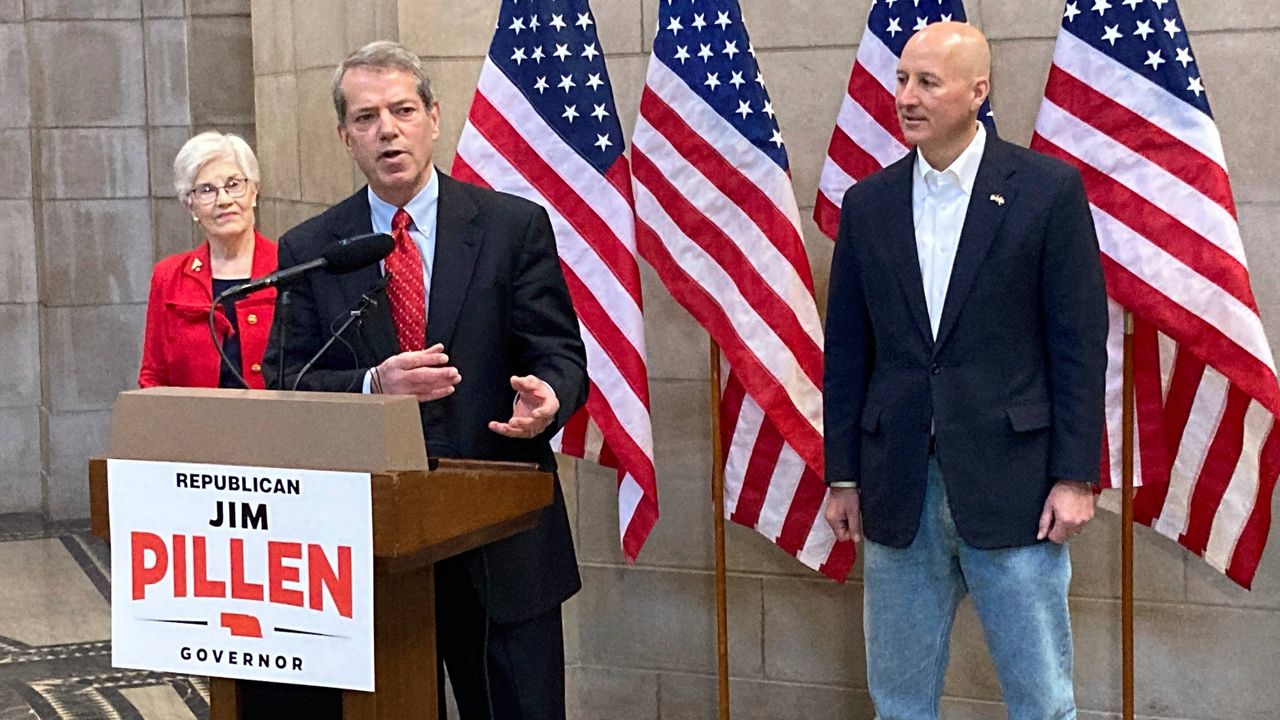Tuesday’s primaries in Nebraska and West Virginia include a gubernatorial candidate trying to overcome allegations of sexual misconduct, a race to replace to a convicted congressman and two House incumbents squaring off against each other.
What You Need To Know
- Nebraska and West Virginia are holding primaries Tuesday
- In Nebraska's Republican gubernatorial primary, Charles Herbster, a Donald Trump-endorsed agricultural businessman, has seen his lead in the polls evaportate since several women, including a state senator, accused him of sexual assault
- Voters in Nebraska's 1st District are deciding on who should replace nine-term Rep. Jeff Fortenberry, who resigned in March after a California jury convicted him of lying to federal authorities about an illegal campaign donation
- The only race in either state Tuesday that is considered competitive by the Cook Political Report is Nebraska’s 2nd District, which includes Omaha
- Because West Virginia lost one of its three congressional seats in redistricting, Republican voters in northern West Virginia will have to choose are two incumbents: Reps. David McKinley and Alex Mooney
Here are four races to watch in the Cornhusker and Mountain states.
Nebraska governor
In the Republican primary, Charles Herbster, a Donald Trump-endorsed agricultural businessman, has seen his lead in the polls evaportate since several women, including a state senator, accused him of sexual assault. Herbster denies the allegations.
Polls now show the primary being a three-way toss-up between Herbster, University of Nebraska Regent Jim Pillen and moderate state Sen. Brett Lindstrom. Pillen has the support of outgoing Gov. Pete Ricketts, who is nearing his term limit.
The controversy surrounding Herbster threatens to tarnish Trump’s golden touch with endorsing candidates. The former president has continued to back Herbster since the accusations surfaced, appearing at a rally with him last month.
In all, nine candidates are seeking the GOP nomination. The winner is expected to face Democratic state Sen. Carol Blood in November’s general election. Blood is running against a little-known construction contractor who has not made many public campaign appearances.
Nebraska’s 1st District
Voters in the 1st District are deciding on who should replace nine-term Rep. Jeff Fortenberry, who resigned in March after a California jury convicted him of lying to federal authorities about an illegal campaign donation from a Nigerian billionaire.
The district in eastern Nebraska includes the capital of Lincoln, but not Omaha or most of its suburbs.
Fortenberry’s name will still appear on the ballot because he resigned after the deadline to withdraw from the race.
Four other Republicans are also battling for the nomination. State Sen. Mike Flood, who owns several radio and television stations, is widely considered to be the favorite. Ricketts and former Gov. Dave Heineman have endorsed Flood.
The GOP nominee will likely face Democratic state Sen. Patty Pansing Brooks in November. Her lone opponent in the primary is Jazari Kual Zakaria, a college student and freelance journalist.
While Tuesday’s primary is the first step in determining who will fill the seat beginning next year, Flood and Pansing Brooks will square off in a separate June 28 special election for the seat until then.
A Democrat has not represented the district since 1967.
Nebraska’s 2nd District
The only race in either state Tuesday that is considered competitive by the Cook Political Report is Nebraska’s 2nd District, which includes Omaha. The online newsletter rates it as “likely Republican.”
Republican Don Bacon is seeking a fourth term. Bacon is not expected to face stiff competition from his lone GOP challenger, Steve Kuehl, a political newcomer and self-described “absolutely nobody.”
On the Democratic side, state Sen. Tony Vargas is facing mental health practitioner Alisha Shelton, who ran for the U.S. Senate in 2020.
Vargas has says he supports banning assault rifles, while Shelton wants to improve voting access.
West Virginia’s 2nd District
Among the congressional candidates Republican voters in northern West Virginia will have to choose are two incumbents: Reps. David McKinley and Alex Mooney. That’s because the state lost one of its three congressional seats in redistricting.
Mooney, whom Trump has endorsed, has attacked McKinley, who has served in Congress since 2015, for voting for the Bipartisan Infrastructure Law last year and for voting to create a bipartisan commission to investigate the Jan. 6, 2021, Capitol insurrection. The infrastructure law is sending $6 billion to West Virginia for improvements, but Trump has slammed Republicans who voted for it because it gave Democrats a victory.
McKinley, meanwhile, has criticized Mooney, who is seeking a fifth term, for previously holding office in Maryland and running losing campaigns in Maryland and New Hampshire.
Three other Republicans also appear on the primary ballot.
Former Morgantown Councilor Barry Wendell and Angela J. Dwyer, a security operations manager, are vying for the Democratic nomination in a state Trump won by nearly 40 percentage points in 2020.



